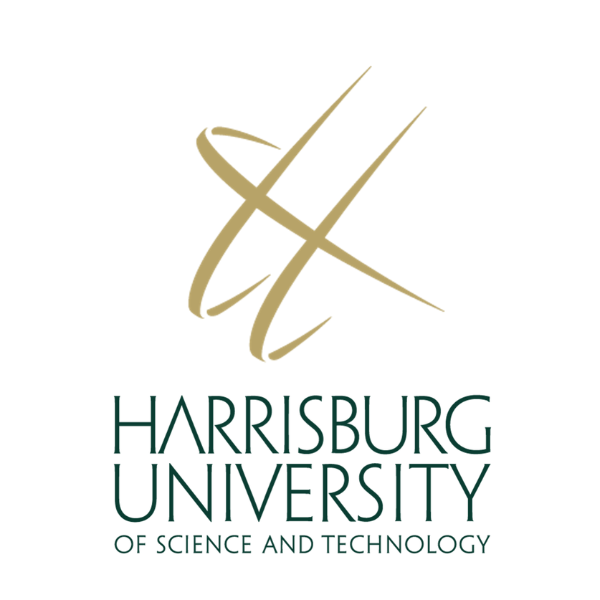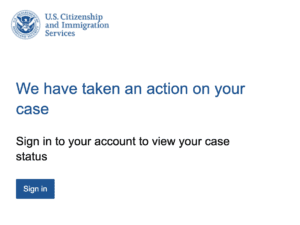Bloomberg Investigates Day 1 CPT, the ‘Elaborate Charade.’
The opening paragraphs of a new Bloomberg article on ICE’s controversial “Day 1 CPT” (Curricular Practical Training) are quite eye-opening:
At 1 p.m. on certain Saturday afternoons, hundreds of foreign-born professionals from all over the US converge on a small city in central Pennsylvania. They gather in a high rise office building where they attend four hours of college courses. They return to the airport and fly home. The majority of students already have a job. If they’re lucky, they won’t ever graduate. If they’re lucky, they won’t ever graduate.
Instead, for most, it’s an elaborate charade to stay in the country legally.
Bloomberg accurately describes this practice — which is occurring without any apparent pushback from the Department of Homeland Security (DHS) — as one that operates “essentially, as a two-year work visa in disguise” that assists foreign nationals by “exploiting a federal on-the-job-training rule” that allows people from India, China, and elsewhere to “work full time while completing most classes online and showing up in person only a few times a year”.
This practice has raised alarms within U.S. Immigration and Customs Enforcement’s (ICE’s) foreign student division, called the Student and Exchange Visitor Program (SEVP). This practice has raised alarms within U.S. Immigration and Customs Enforcement’s (ICE) foreign student division, called the Student and Exchange Visitor Program (SEVP). Bloomberg says that the practice is “in a legal gray area, tolerated but not explicitly authorized by the Department of Homeland Security”. As Bloomberg puts it, the practice operates “in a legal gray area, tolerated but not explicitly authorized by the Department of Homeland Security”.
Day 1 CPT operates “essentially, as a two-year work visa in disguise” that allows aliens to “work full time while completing most classes online and showing up in person only a few times a year”.
There are currently 140,829 foreign students who have obtained work authorization through the CPT program. CPT allows foreign students who are enrolled in a school to receive training that is directly related to their major field of study, as long as it is “integral to the established curriculum”. This type of employment is rational when graduation requires practical hands-on training on the job (e.g. some medical degrees). One could imagine a nursing student, for example, taking all of the knowledge she’s received from two years in school and applying it in the real world during the final semester of classes.
So-called “Day 1 CPT”, however, is employment that begins as soon as the foreign student arrives in the United States. Students usually arrive on campus for orientation and then leave to their new job, even if it is in a different state. It is a serious issue whether these foreign nationals are considered “students”. DHS has not reported how many foreign students participate in “Day 1” of CPT. Bloomberg estimates that as of Fall 2022, “24,000 foreign graduates were enrolled” in schools offering Day 1CPT. This estimate does not include undergraduate students.
Though the practice of Day 1 CPT may be in a gray area of law, and the total numbers unclear, SEVP “declined to answer a series of written questions from Bloomberg about Day 1 CPT”.
Opposition to transparency on immigration issues has been a hallmark of the Biden administration, and the public should be very concerned that a powerful office within ICE is unwilling to answer basic questions about their own program. This office also ignores multiple requests from Congress regarding the Jordanian student who attempted a breach of Marine Corps Base Quantico several months ago. About half a dozen congressional inquiries remain unanswered, and we don’t even know what school enrolled this individual.
Since SEVP won’t provide Bloomberg a quote, I’ll provide a quote from the head of SEVP. The head of SEVP told me in a serious voice that “we need to do something” about Day 1 CPT when I was at ICE. It was a direct acknowledgement that this practice has developed outside DHS’s control, and threatens both the legitimacy of the Foreign Student Program and national security. The fix that ICE was working on under the Trump administration was focused on practical training as a whole — to include Optional Practical Training and the STEM version — and likely would have effectively ended the practice of Day 1 CPT.
Bloomberg spoke with Steven Brown, an immigration lawyer with Reddy Neumann Brown PC in Houston, who raised an issue central to all of these “practical training” programs:
On a student visa, “you are supposed to be a student, not a worker,” Brown said. “When you have this handful of schools that are gearing their curriculum around work rather than study is where it kind of gives me some pause.”
Bloomberg explains the situation quite well here:
For schools and students alike, success requires a bit of misdirection. To qualify for CPT, schools must claim that students’ jobs are “integral” to the coursework. This is true even though their jobs are different and some do not have any. And students, if they’re ever asked, must assure immigration authorities that they sought the degree primarily for educational reasons.
Bloomberg found some very interesting data that indicate the students are not really interested in an education at all, noting that “more than half dropped out after winning the H-1B visa lottery, according to a 2017 financial disclosure” and that “fewer than one in three hung around through graduation”. In other words, CPT and the institutions that promote it are nothing more than an address for foreign nationals to hang out until they can obtain an immigration benefit or a foreign worker visa.
A school administrator for Harrisburg revealed some very troubling issues that should have immediately resulted in SEVP revoking the school’s ability to enroll foreign students:
Susan Wayman, a veteran college administrator, joined Harrisburg in 2020 to run the office. She began to notice compliance problems everywhere. Most of the problems were technical: a program that was not registered with DHS, students who had started classes before DHS files were in place, and no policy for students who wanted enroll without a job. When Wayman brought up the problems with
and others administrators, she said that they seemed more concerned with tuition dollars than compliance. Wayman said that the leadership did not care about regulations. They wanted to make it easy for students to enroll. Wayman said that she started looking for another job almost instantly and quit less than a month later. SEVP has done nothing about this. The leadership of Homeland Security Investigations, which oversees SEVP should be working to fix the problem. When SEVP allows threats to national security to percolate, the likelihood of bad things happening increases. And when something bad does happen, more than likely it’s going to be HSI that’s pulled before a congressional committee.
The issues have apparently continued and Harrisburg staff have been reporting it to their school’s leadership, without resolution, raising the question of what SEVP is doing, if anything:[Eric Darr, then the interim college president]Friction between the university leadership and the international student office continued. The tension between the university leadership and the international student office continued. The staffers claimed that they were regularly asked by higher-ups, to bend rules in order to increase enrollment. One employee wrote, “I have seen numerous violations” of the student-visa regulations. “Whenever this has been brought up to leadership, my job has been threatened.”
ICE’s regulations require very specific record-keeping by schools that have been certified by SEVP to enroll foreign students, and failure to adhere to the rules is supposed to result in the school losing its certification. The school will be unable to enroll any new foreign students. SEVP has been tasked to keep track of all foreign student through the Student and Exchange Visitor Information System, or SEVIS. It is a difficult task even under the best circumstances. SEVP should ensure that the schools it certifies are in strict compliance. Bloomberg writes: Yet Bloomberg writes:
Before 2023, the staffers said in emails to federal authorities, Harrisburg didn’t have reliable records showing if students had met in-person attendance requirements, even though it was routinely telling immigration officials that it did.
In May of last year, Harrisburg fired one of the office’s five employees, according to people with knowledge of the events. People with knowledge of the events said that three others quit the office later in the same week because they believed their colleague was fired for refusing to bend a rule. The alleged issue was something Wayman flagged – allowing students to begin classes before their official DHS record from their previous school had been transferred. The people requested anonymity because they said they feared retaliation from the university.
Contacted by Bloomberg, the SEVP official referred questions to the DHS press office, which declined to comment on the matter.
In its defense, Harrisburg University told Bloomberg that it didn’t violate SEVP rules or pressure anyone to do so. SEVP has not reacted to the practice, so other institutions have sprung up to take advantage of it. Bloomberg highlights Trine University in Indiana as a private institution that has opened satellite locations throughout Michigan, Virginia and Arizona. It has been “a top Day 1 player for the past three years”. It requires hardly any attendance by students — as little as one in-person visit per semester, a total of two per year.
Bloomberg notes that “federal rules governing student visas don’t set a minimum number of in-person visits”, which is technically true, but the regulations do require that students are “pursuing a full course of study” or “engaging in authorized practical training following completion of studies”. The document issued by
states that “an alien who is granted employment authorization under the terms of the document shall be considered to be engaged in a full course of study” if they remain registered for at least the number of quarter or semester hours of instruction per academic year specified by
for the validity period for such employment authorization”. The regulation is vague on how CPT works, but it explains that an F-1 student can be authorized by the
for a curricular practicum program as part of a curriculum. Curricular practical education is defined as alternative work/study programs, internships, cooperative education or any other type required internship or practicum offered by sponsoring companies through cooperative agreements with schools. SEVP has not done anything to curb this practice. SEVP or Congress must step in to ensure that our foreign student program retains any legitimacy. As it is, Harrisburg University is already working on a plan to reduce its required number of in-person sessions from nine per year to only six, according to Bloomberg.[DHS]Congress intended that our foreign student program operate to provide foreigners an education and cultural experience in the United States that they can bring back with them to the home country upon graduation. If it hasn’t done so already, the foreign worker program will quickly transform into a foreign student program without some immediate changes. The foreign student program is a waste of time if foreign students don’t come to study and then return home. It would not be necessary to mention Day 1 CPT. DHS doesn’t mention the practice in any of its regulations, and it isn’t a program. SEVP didn’t quote Bloomberg on Day 1 CPT because they didn’t want the office to be seen as legitimizing the practice. SEVP could amend the regulation so that foreign students must attend class in person at least three times a week at the campus where they were enrolled. It could only allow CPT where it’s a requirement for all students to graduate. It could limit which degrees qualify for CPT. There are many other options. However, Congress will likely have to force SEVP to make a change as soon as possible.






